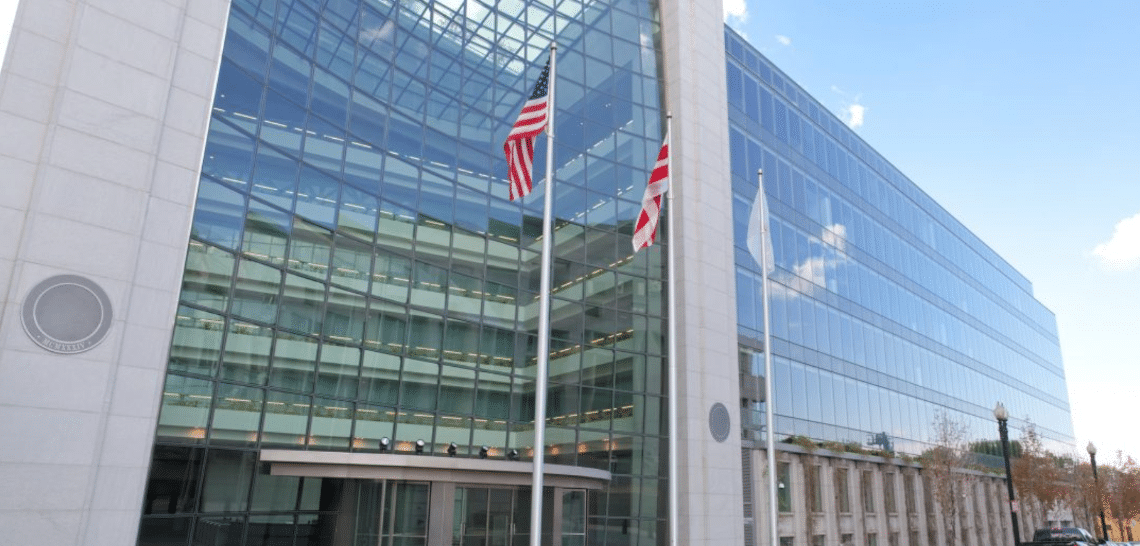
The SEC Commissioner Hester Peirce wants to give projects in the crypto sector a chance to avoid conflict with US securities laws when seeking funding.
Peirce, who has been with the Securities and Exchange Commission for two years and is known only as “CryptoMom” by the blockchain community, has formally proposed a safe haven for token projects. This would give more room for funding and development before projects have to worry about regulatory requirements.
Three-year grace period from the first sale
Peirce’s proposal was made at the International Blockchain Congress in Chicago. According to it, startups in the crypto sector would have a three-year grace period from the first token sale in order to achieve a certain degree of decentralization. This should be sufficient to pass the security evaluations, including the Howey Test. With the howey test, the SEC distinguishes between utility and security tokens. The latter are regarded as securities and are therefore automatically subject to the legislation governing the sale of securities.
To date, the SEC has filed enforcement actions against companies that have created and sold tokens. The companies concerned were, for example, the Telegram and Kik messaging platforms.
“The analysis whether a token is offered or sold as a security is not static and has nothing to do with the digital asset“. – Hester Pierce
Possible examples with ethereum and EOS
According to William Hinman, SEC Director of Corporate Finance, ethereum could be such an example. In a statement issued in June 2018, Hinman stated that ether did not appear to be a security at that time. Chairman Jay Clayton supported this view as digital assets may eventually cease to be investment contracts. Hinman went on to say that although ether could be a security at the beginning, the network has since developed over the following years.
A similar process was observed at EOS. Block One made a total of about $4 billion from the sale of the EOS token. Last year, the SEC reached a settlement with Block One. There the original ERC-20 EOS token qualified as a security, but the final EOS token no longer qualified. As part of the settlement, Block One was fined a one-off fine of USD 24 million. “The company did not obtain an exemption from the securities registration requirements and did not otherwise register the sale,” the SEC stated in a press release at the time.
Transparency is a fundamental component
Peirce has already introduced the idea of a safe haven in the past. Thursday’s proposal is the first formal attempt to implement such a safe haven.
If the proposal is accepted by a majority of the remaining SEC officials, it would create strict requirements for cryptographic projects to raise funds through a token sale. In addition, there would be requirements for personal disclosure of the token holder and a disclosure of the software code, among other things.
It would also require the development team to disclose the names, relevant experience, qualifications, attributes, and skills of each member. The number of tokens held by each member and any bonuses and rewards would also be presented.
Ensuring secondary trading is part of the proposal
At the end of the grace period, the initial development team must determine whether token transactions constitute securities transactions. The team must be careful to provide liquidity for token transactions by additionally securing secondary trading venues (which must continue to be compatible with applicable money transfer and investor protection laws).
In the context of a safe haven, secondary trading is recognized as a necessity. On the one hand, to get the tokens into the hands of people who will use them. On the other hand, to give developers and people offering services on the network a way to exchange their tokens for fiat or crypto currency.
Investor protection and Securities Act an integral part
In order to strengthen investor protection, Commissioner Peirce’s proposal also includes that the source code, transaction history, economic token situation, roadmap, and history of token sales should be published on a publicly accessible website.
While the proposal would anticipate government securities laws, it would not protect projects from enforcement action taken as a result of fraud or other illegal activities.
For projects that are already in operation, the proposal would not be entered by force, Peirce said. The aim is to focus on new projects in the early stages of development.
* Originally published in German at CVJ.ch

